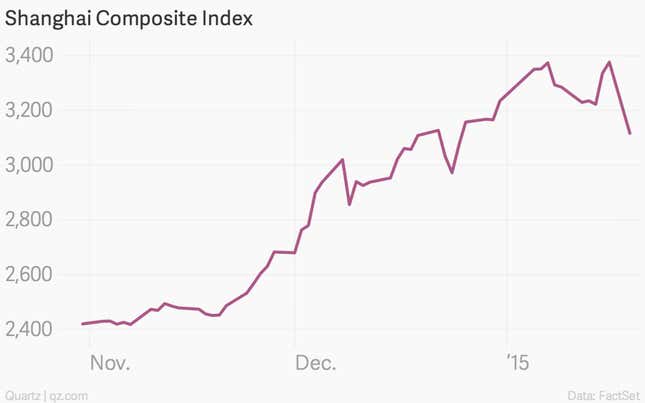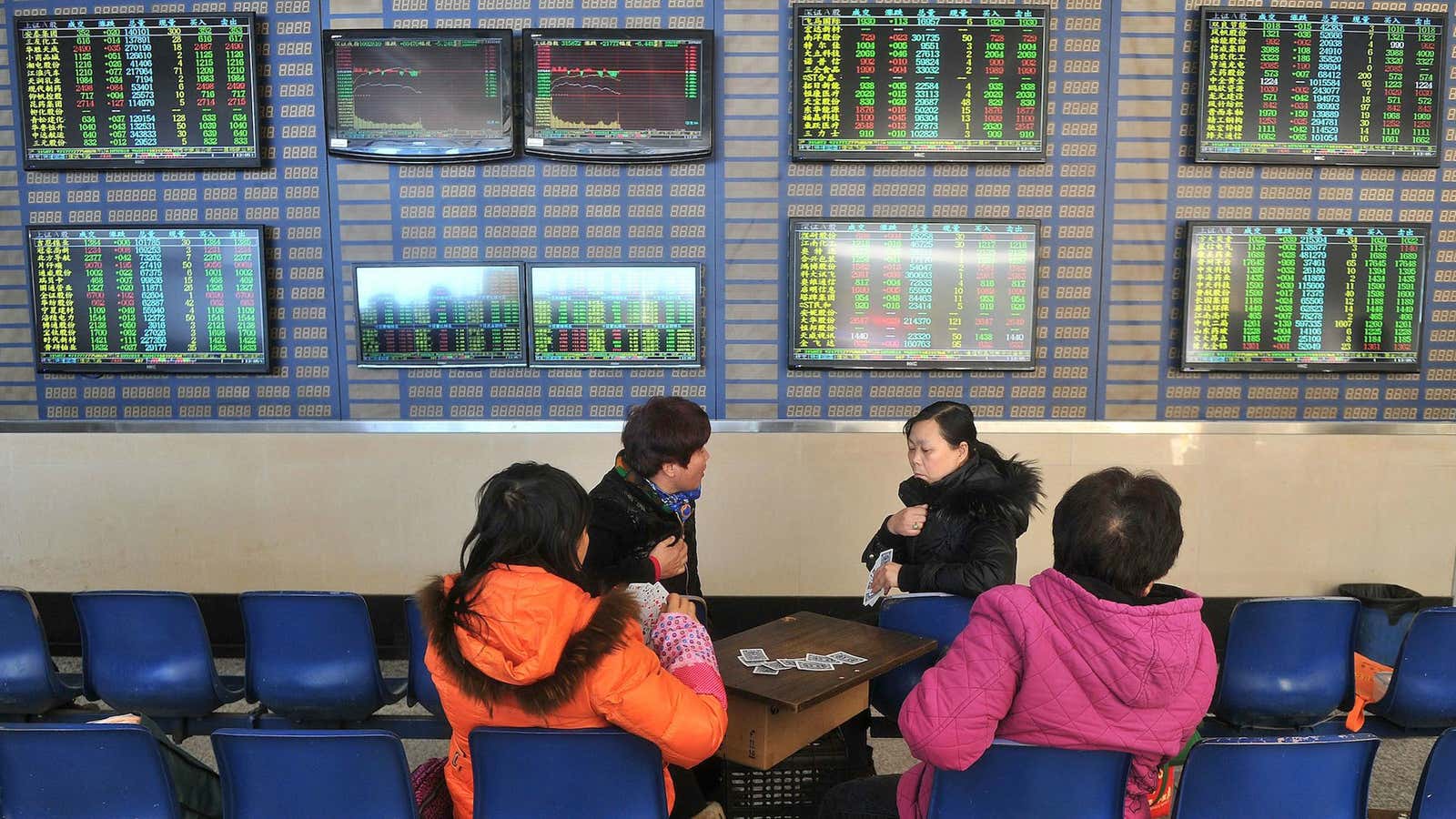Chinese stocks tumbled today, with the Shanghai Composite Index (SCI) down almost 8%, its biggest fall in a single day in six years. The culprit? A crackdown on margin trading, which allows investors to buy stocks with money borrowed from brokers. China’s securities watchdog announced on Friday after markets closed that it had barred three of the country’s largest brokerages by assets from opening new margin trading accounts for the next three months, a move that at least one analyst described as a “nasty surprise.”
It’s not quite that big of a surprise. As Quartz has reported, China recently softened restrictions on margin trading to help open up its financial markets. That has in turn given rise to a boom in margin trading that has pushed up Chinese stocks—on Friday, before the crackdown was announced, the SCI closed at its highest level in 65 months—even as corporate profits have underperformed and Chinese economic data has disappointed. Outstanding margin loans were about 767 billion yuan ($123 billion), according to the Shanghai Stock Exchange, compared to just 444 billion yuan just three months earlier.

This surge has been driven in part by mom and pop investors, with whom margin trading has been extremely popular. And they may be hit the hardest.
In a margin trade, an investor’s loans from a broker are backed by his or her equity holdings. As Quartz noted earlier this month, quoting David Cui, strategist at Bank of America/Merrill Lynch:
“That speedy take-up could prove problematic. Chinese investors aren’t experienced enough with margin trading to know what happens when the market drops, says Cui. When falling markets force investors to sell out of their margin positions, they find themselves suddenly owing much more than the money they initially invested. While China requires a relatively high downpayment ratio, says Cui, that inexperience could cause an overreaction that makes liquidity disappear quickly. That would be bad for the market, of course. It could also be disastrous for the economy, where tight liquidity makes sudden cash squeezes dangerously easy to trigger.”
The three brokerages targeted on Friday, Citic Securities, Haitong Securities and Guotai Junan Securities, had broken trading rules by rolling over expired margin loans, and Chinese authorities punished nine other brokerages for similar offenses. The China Banking Regulatory Commission also cracked down on entrusted loans, an alternative to margin trading and a kind of shadow banking product.
